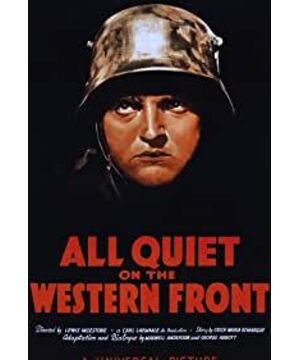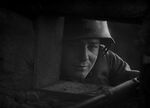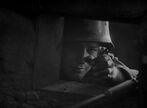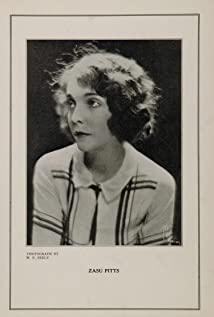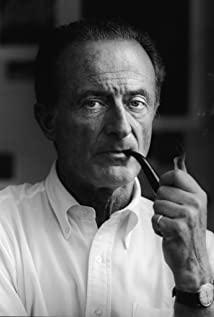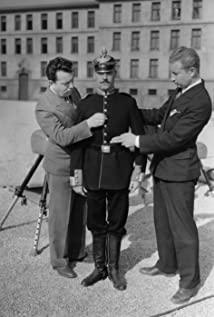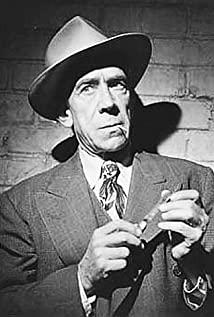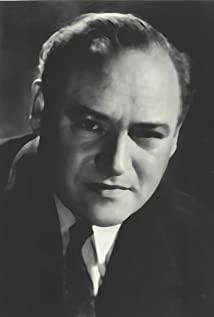So I want to say again that this black and white war film "No War on the Western Front" has once again changed my view.
The film tells the story of a group of teenage middle school students who joined the army to fight under the instigation of their teachers, determined to die for the country and become fighting heroes, but they never survived.
There are too many fragments in the film lingering in my mind, let me listen to me one by one.
In the beginning, the scene moved from the street to the classroom beside the road. In the classroom, the teacher was not preaching and teaching karma to solve puzzles, but used agitating words, fierce or even fanatical preaching of the glory of sacrifice for the country. And most of the young people were full of imagination and fantasizing about the sassyness of wearing military uniforms, so they decided to join the army without hesitation. The teacher's words are so passionate, so there is no doubt that there is a kind of hypnotic power. I don't know how many people blindly joined the army because of this.
In the training before the official war, they met the instructor who used to be a postman. They thought he would be as kind as before. Unexpectedly, when he arrived in the army, he was completely changed. He was strict and unreasonable, and even deliberately rectified the recruits and let them deliberately. Creeping in the muddy depressions. The audience would definitely think that such a stern instructor must be a fierce general on the battlefield. He did not expect that he was the one who had scratched his hand and hid in the crater as a tortoise. Possession urged him to go quickly. He was afraid. He refused to take a step, but when he heard "FORWARD", he rushed out desperately, as if his personality was split. A password he usually shouts made him into a crazy state again, and lost himself.
Watching that group of brilliant children, an individual war claimed life or humanity, I don't know which of the two is more precious.
In another battle, a soldier was in ambush in the crater when he charged. Enemies were everywhere around him. Just before he didn’t know what to do, an enemy found him. Out of the instinct to survive and the natural reaction developed in the battle, he took out a dagger. To the chest of the French soldier, but the French soldier did not die immediately. He had long been numb to murder, and faced a dying person alone at a loss. Then, he repented. He took the initiative to feed the French soldiers with water, and he begged him not to die. The French soldiers couldn’t help groaning in pain. Amidst the roar of artillery fire, he couldn’t stand the groaning. I was relieved to see that his humanity had not disappeared. His heart was also condemning himself, and finally in his heart. His pain made him tell why you didn’t die soon! Because he couldn't bear such suffering anymore. But immediately he regretted it again. He cried and said, "No, you will be fine, we should be like brothers... However, the French soldier who was wounded finally died, and he treated him again. Repent, I will write to your family, and I will make them feel better until he sees the photos of his wife and daughter in the French soldier’s pocket and realizes the crime he has committed.
This reminds me of the question that I have been unable to figure out before. Why are some unethical behaviors made by individuals allowed and even commendable in war?
War will wipe out humanity, and this will soon be seen from the fact that soldiers no longer regret the murder after returning to the army. He even comforted himself that the reason why I felt bad was because I had stayed with him for too long.
The soldier had the opportunity to return home. Except for his mother and sister who cared for her, his father still drank wine with his friends to discuss the course of the war, and he didn't understand the tragic situation of the war. Back at school, he found another group of students ready to follow their footsteps. He kindly persuaded them to be rational. War is a cruel thing, but he was ridiculed and timid.
Soon he returned to the battlefield. The first thing he wanted to do was to meet his comrades who had treated him like brothers and sons. As a result, not long after they met, the enemy's shells killed his closest person. The war was so cruel that I couldn’t bear it. The most distressing thing was that he didn’t even know about the death of his comrades until he was sent to the military hospital, thinking that he had just passed out. How sad the news of the death changed. Maybe it was the maturity that the war tempered him, maybe he had seen too many people die, he didn't show too much sadness for the death of his comrades, and the battle still had to be fought.
At the end, I like the seemingly calm battlefield. He was attracted by a butterfly. In order to help his sister catch that butterfly, he was unfortunately killed by the enemy.
The director did not film the entire process of the actor being killed, but instead focused his perspective on the hand that caught the butterfly, giving the audience room for imagination. He just wanted to catch a butterfly, but gave his life for it. But the newspaper on that day stated impressively: No war on the Western Front.
View more about All Quiet on the Western Front reviews


